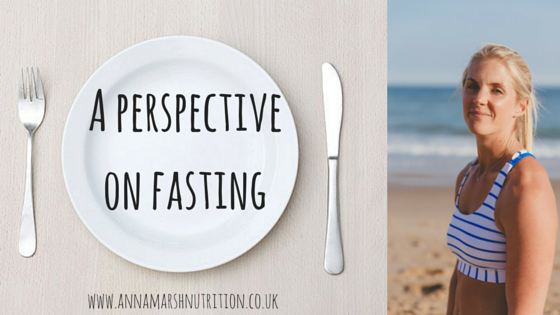Intermittent fasting, where one eats all their food within a 8 to 10 hour window meaning that 14 to 16 hours of the day is fasted, has been “on the scene” for several years now. It has become popular due to promising research that it may offer health benefits an event potentially extend lifespan…
- Research has shown that animals that eat every other day in a laboratory environment live 30% longer and show resistance against diabetes and neuro-degeneration.
- Fasting can also act as a spring clean for cells, cleaning up molecular “garbage” in a process called autophagy. Autophagy may also be important for the maintenance of muscle mass, which means, if done properly, fasting can promote fat loss whilst maintaining muscle mass.
- Periods of fasting may reduce inflammation and blood pressure and improve circulating glucose, lipids and immune molecules. Metabolism is altered for greater efficiency and reduced oxidative stress.
It all sounds very convincing and therefore it is not uncommon that I come across clients who have used fasting strategies or I get asked about my views on fasting.
I must admit I have often been pretty “anti-fasting”. I’ve had two experiences with fasting, one bad, and one actually pretty good.
THE GOOD AND THE BAD
The bad one was when I was doing CrossFit as my main weekly activity and I was also pretty run down. Prior to trying it out I had just had mouth ulcers for the first time ever. On reflection it all seems a bit silly now but often its difficult to see these things without an outsiders perspective. It probably not the best time to start adding in the stress of food restriction.
The second time was last year on a 7 day yoga retreat where, by default, we were doing a 14 hour fast. Each morning we did a 2.5 hour yoga practise until about 10am after which we would have breakfast. Dinner was usually around 7:30pm/8ish so it worked out to about 14 hours without food. This fasting experience was the opposite of my previous experiment; each day all I was doing included yoga, meditation, reading, swimming and just relaxing. No intensive exercise and a complete digital detox, so no technology or social media.
THE RESEARCH
Interestingly, before said yoga retreat I had literally just completed my Masters thesis. The thesis was looking at Mitochondrial DNA and Sports Performance, specifically diet and supplements that would upregulate mitochondrial genes to make us more efficient at burning fat as a fuel source.

This is the diagram I produced as part of my research. Probably mumble jumble for anyone without a background in Biochemistry but I thought it would be nice to break up the text ;)
While researching for the project I had to read a lot of papers, papers which looked at what happens in cells, what happens in animals (mice) and what happens in humans.
It is obviously much easier to do experiments on cells in petri dishes and mice in cages than it is on humans. All the same, the animal research especially seemed to produce a pretty convincing argument for the metabolic effects of fasting. It just becomes difficult when you carry it across to humans with the complexity of the lives we lead.
One of my reasons for being anti-fasting was based on my fasting experience number one and also some of the (yet again, animal) research I had read about fasting in female rats. Female mice showed increased food seeking behaviour, disrupted menstrual cycle and increase in stress levels when subjected to every other day feeding.
To be honest, this probably close to what I was probably experiencing the first time I tried fasting. I didn’t give it enough time to experience any disruption to my menstrual cycle. But it just didn’t feel good.
FASTING VS FASTING AND CALORIE RESTRICTION
Much of the research that looks into fasting mostly uses fasting alongside calorie restriction and this is also how it is often applied in practise. So if someone is exercising intensely (like CrossFit) and is perhaps just eating enough calories or not enough (as I often see) and then they introduce fasting, they may naturally restrict calories further, creating a greater energy deficit.
I have seen quite a few clients who are causing negative symptoms by under-eating. Low energy, low food, failure to thrive in the gym, poor sleep, joint aches, stagnant weight. It is amazing how much better one can feel and how quickly one can feel it, when you start to eat appropriately for your needs.
This most likely explaining fasting experience number 1.
When I first tried fasting I wasn’t where I am now, both nutritionally and with my health. I mentioned the mouth ulcers and being run down. I also wasn’t tracking macro’s. I thought I was eating healthy but to be honest, I don’t really think I was. Of course I was eating healthy foods, but I didn’t have my balance right. So I had probably been putting my body under some stress doing high intensity CrossFit and not eating optimally, not to mention this was when I still lived in London, my lifestyle was very different, stress was high and sleep was low.
When I did the yoga retreat fasting, yes, I had been under a lot of stress finishing my Masters Thesis, BUT I had been eating well (tracking macro’s and calories), training well (not too much high intensity) and sleeping well (because I was eating well). This probably gave me the resilience to cope much better with the MSc. stress and not come out the other end a train wreck. It also meant my body, in the nice relaxed environment of the yoga retreat, didn’t even really notice that it was doing intermittent fasting.
WHERE IS THIS GOING?
Well, I am now trialling something similar to fasting. What I am doing is reducing meal frequency to eat just two meals a day. By default this means I am doing IF.
I track my calories and macro’s most of the time. I have written about it a few times (here and here and here and here) so I won’t go into much detail. But in summary, I know how many calories I need per day. I know how to adjust this when I change my training program. I basically know what my body needs for what I ask it to do.
This means that all I have to do is divide this into 2, eat one half at about 8:30 after I workout in the morning and the other half about 5pm or whatever fits in socially.
I have to be honest and say that I have only just started. So I will probably give another blog update.
So far, so good. Yes if you under-eat you will be hungry and miserable. But if you know what your body needs and you give it what it needs, there is no reason to feel hungry or miserable.
I guess the next question is, why?

THE WHY?
One of the reasons that intermittent fasting became popular was because every time we eat a meal we produce insulin. Insulin is the hormone that controls blood sugar and excessive insulin production is associated with insulin resistance, weight gain and metabolic syndrome.
If you watched my metabolic flexibility video series you will understand that fasting challenges the body to tap into stored fuel (fat) and become more efficient at burning fat as energy. This can produce a whole host of metabolic benefits and is very beneficial in terms of managing the immune system and controlling disease.

If you haven’t already watch this YouTube Video to understand metabolic flexibility better
Additionally, every time we eat we potentially produce what is called a post-prandial inflammatory response. If you are eating 3 times a day and several snacks, or if you follow a body building mentality of eating 6 or 8 meals a day, or every 2-3 hours. This means that essentially you are in a permanent inflammatory state all day. Research is now suggesting that this inflammatory state is linked with metabolic disease.
It is important to note here that something people will consume coffee with cream or coconut oil as part of their fast. Because this is a high fat food it is perceived to be low insulin and then still classified as fasting. Although insulin may be low, it is still possible that large amounts of fat, especially saturated fats, can trigger post-postprandial inflammation.
If you watched my video series on biorythyms you will understand that the immune system should be active at night where it does its “clean up”. Continuous eating throughout the day could be keeping the immune system active, then night time activities keeps the immune system active, which can lead to a permanently active immune system.
We also understand that insulin resistance, diabetes, elevated cholesterol, central weight gain and other metabolic problems are inflammatory in nature, which means that the underlying cause is immune. Fasting not only may increase metabolic flexibility but help to support conditions associated with the immune system and inflammation.
Finally, recent research has also suggested that fasting may create adaptive responses which suppress inflammation, having a beneficial effect within the brain, preserving cognitive impairment.
I just want to be clear that coping with health issues is not as simple as just doing one thing. It is very easy to fall into the trap of thinking one thing is “the answer” to everything.
It’s not.
There are probably several things that one should be doing to optimise health. I also believe that each person is different and we have to tailor our approach for each person. Some things I would recommend getting right which I have blogged about previously are:
CASE EXAMPLE AND METABOLIC STRESS
Some people will get on with fasting some won’t.
To be honest, I always thought I could never do it. I feel like I need to eat a lot all the time and I couldn’t imagine going without food. Since having the light bulb moment that I can still eat the same amount of food, just less meals, it has clicked a bit for me. It has also helped me to realise that my “need to eat” was more of a bad habit than a real need.
Will I do it forever, probably not. Its new at the moment so it is taking more thought and planning.
On the flip side I have some clients who seem to do well on it. I have a client who has a family history of Diabetes on both sides. He prefers to exercise fasted and isn’t that interested in food. We have been working together for almost two months and it has been REALLY tough getting any weight to shift mostly likely due to his metabolic predispositions. He definitely goes down as one of my most “stubborn” clients (in terms of progress) but he has been fantastic in staying persistent and trying different things and not going off the rails and getting frustrated with slow progress.
Recently we tried a “metabolic stress” approach. The idea being to create a massive amount of metabolic stress one day a week. Similar to the way you would maybe train hard for 4 to 6 weeks and then do a deload, just slightly condensed.
We create metabolic stress by training in a fasted state and also inducing calorie restriction by only consuming 1 meal of 500 calories.
I know I have already suggested to maintain adequate calorie intake, but this would be an acute practise, not a daily practise. Similar to the way that we do not do one rep maxes every week but only occasionally.
I tried this with this specific client because I knew that he would cope well. This would not be the case for every client. Interestingly, when I spoke to him about a week later, it had caused a good shift in body weight that he was looking for and we went back to his regular training and nutrition routine the following day.

HAVEN’T YOU JUST DESCRIBED THE 5:2 DIET?
The 5:2 diet is a dietary approach where 2 days of the week you eat 500 calories and the rest of the week you eat “normally”. In light of the above, I do feel that this approach can actually work well. The problem is, that many will do the 500 calories on 2 days and then use it as an excuse to eat whatever they want on the other days.
The other piece of the puzzle is meal frequency. You want to make sure you only have 1 meal of 500 calories and do not graze over low calorie foods all day.
My advice would be, at first learn to eat well for what YOUR body needs. When this comes consistently maybe start with 1 day a week on 500 calories and then try a second.
It is important to listen to your body. If it starts to feel restrictive or stressful, especially if there are many other things going on in your life, maybe it isn’t the right time. It is probably also not a good time to try this approach is you are struggling with any fertility issues.
WHAT DOES MY APPROACH LOOK LIKE AT THE MOMENT?
So how am I conducting this experiment at the moment?
[please bear in mind this approach is specific to me, not a generalised plan]
Depending on the day and my activity levels I eat around 150g protein, 150g carbs and 85g of fats. Sometimes I will eat more carbs and less fats if I’ve trained hard (legs) or done more than one activity that day (swimming or kayaking in addition to weights). This is 1965 calories.
6:00am: wake up and have a coffee
7:00am: Train
8:30/9:00am Eat about 900-1000 calories with approximately half my macros
5:00pm Eat the rest of my calories and macros
That’s it!
[I may have a third meal on a day when I train twice, but this doesn’t happen often]
I’m sure some people will ask how I manage to eat so much in one meal. I know that my clients often complain when I get them to eat this much across several meals. I therefore wouldn’t recommend increasing your calories and trying this at the same time. Maybe make sure you can hit your calories and macros consistently first. I must admit I don’t find it that hard although I am having some 0% Greek yoghurt or protein powder to help with the protein.
BENEFITS FOR ME SO FAR
So the final part of this is mostly anecdotal, but, needs to be said in case it is something that can help you. Let’s just say that I have been having some problems with my digestion over the past month.
I recently had a test done with Cyrex to see if my occasional gluten consumption was to blame. The tests came back normal.
I have a good diet.
I eat my fermented foods every day.
I couldn’t think of what else I could do to improve but each day without fail I was suffering from stomach pains and loose stools [I’m a nutritionist so I can talk about these things 😉 ]
After 1 day of the 2 day meal frequency everything went back to normal and it has stayed that way since. I cannot put it down to anything in specifically but all I can say is I am happy to feel functioning as normal again.
SUMMARY OF IMPORTANT POINTS
- The research behind fasting suggests it can be beneficial for rebalancing metabolic health and the immune system, reducing inflammation and neuro-degeneration
- Animal studies suggest a negative impact on fertility but this was with calorie restriction
- Adequate calorie consumption with reduced meal frequency may have a similar benefit
- Understand your diet first before you add fasting
- Having cream, butter or coconut butter during periods of “fasting” can still trigger postprandial inflammation
- If its a big jump, start by cutting out snacks first (while maintaining calories)
- If stress is an issue you may want to deal with adrenal health first and foremost
- Reducing meal frequency may benefit digestion
- Generating large amounts of metabolic stress occasionally, not daily, may also have health benefits for those who are less committed to a regular fasting regime

 You can also listen to Vanessa’s interview here
You can also listen to Vanessa’s interview here





















